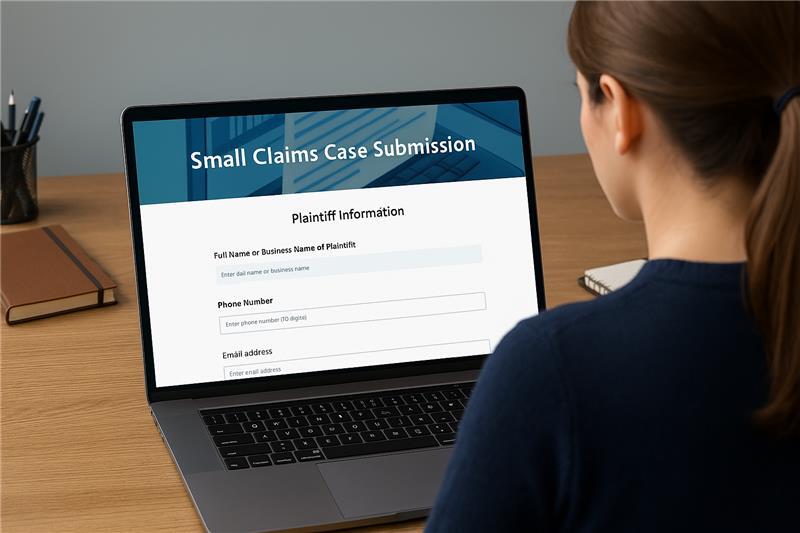Filing a small claims lawsuit in California is one of the fastest and most affordable ways to resolve disputes up to $12,500. This guide explains every step of the process—from completing the initial forms to collecting your judgment.

Countrywide Process
April 11, 2025
Small Claims Court is built to give everyday people and businesses in California access to justice—without needing an attorney. Whether you’re trying to get a security deposit back, collect an unpaid invoice, or recover for damages, this guide covers everything you need to know.
Anyone 18 or older can file a claim in California Small Claims Court. You can sue as an individual, sole proprietor, tenant, landlord, or business entity. Minors can also sue through a guardian or parent.
Common types of small claims include:
Before filing, make sure to gather:
📄 For a full checklist of what you need to start, visit:
👉 What You Need Before Starting a Claim
The SC-100 (Plaintiff’s Claim and Order to Go to Small Claims Court) is the main form used to file a small claims case in California. Instead of filling it out manually and guessing what goes where, you can use our easy, Self-Guided Interview Tool.
✅ Here’s how it works:
It’s the fastest and most accurate way to start your small claims case without missing critical details.
👉 Start your claim now: Guided Preparation Filing and Service for Small Claims
Aside from the SC-100, you may need:
We’ll help you prepare the correct forms based on your answers during the interview.
You can file your claim in three ways:
💸 Filing fees:
Legal notice is required. You can’t serve papers yourself. We handle this step for you if you file through our system.
Service methods include:
Deadlines depend on location:
Once the defendant is served:
Many counties offer free or low-cost mediation. This is a voluntary, confidential process to help settle your case without going to trial.
If mediation doesn’t work, your case will go to a short trial in front of a judge.
Be prepared:
If you win and the defendant doesn’t pay voluntarily, you can collect by:
California judgments last 10 years and can be renewed.
If you’re a landlord suing a tenant for rent owed between March 1, 2020, and September 30, 2021, you’re exempt from small claims monetary limits.
Use Form SC-500, and keep in mind that tenants may have special legal protections.
California Small Claims Court is a fast, affordable legal solution for individuals and businesses. Whether you’re owed money for work, rent, or property damage, our self-guided platform makes it easy to file and serve your case statewide—with no attorney required.
🟢 Start your case the easy way today:
👉The following page includes a complete list of what you need to be ready for the guided interview, court filing, and process service for one flat rate.
Visit our Small Claims Checklist here:
📋 What You Need Before Starting a Claim
No. Lawyers are not allowed to represent parties during small claims hearings in California.
Use a reasonable estimate based on available documentation.
You can use court-enforced tools like wage garnishment or a bank levy.
Yes, but you can only file two claims over $2,500 each year.
Most hearings are scheduled within 30–70 days after filing.
Research using the CA Secretary of State’s Business Search or ask us—we help verify business entities during the interview process.
Yes. If you win, the judge may include court fees and service costs in your judgment.
Yes. File Form SC-150 and explain your reason.
Absolutely. Our system guides you step-by-step and provides support if you get stuck.